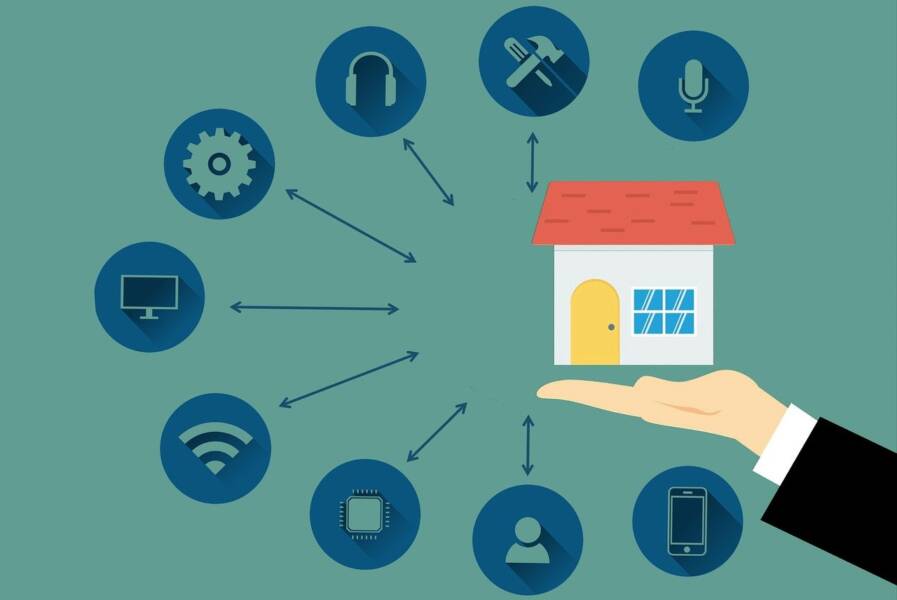The concept of home automation, once a futuristic vision, has now become a reality, significantly enhancing the way we live in our homes. This technological revolution, led by companies like Schneider Electric, has transformed ordinary residences into smart homes, offering unparalleled convenience, security, and efficiency. The impact of home automation on modern living is profound, as it integrates various household functions into a single, cohesive, and intelligent system.
Home automation is fundamentally concerned with the control and automation of lighting, heating, ventilation, air conditioning (HVAC), and security systems. It goes beyond basic remote control by enabling complex scheduling, energy efficiency, and real-time adjustments. This level of control and automation provides a level of comfort and convenience previously imagined.
One of the major advantages of home automation is its impact on energy efficiency. Smart houses can considerably cut energy usage by optimizing the use of lighting, heating, and cooling systems. Smart thermostats, for example, a popular feature in many automated homes, may learn a household’s schedule and adjust temperatures accordingly, preventing energy from being wasted on heating or cooling empty regions. Schneider Electric stresses this aspect with its smart home solutions, delivering equipment that not only automates but also provides analytics to monitor and cut energy usage.
Home automation and security benefits
Home automation also provides significant security benefits. Smart security systems allow homeowners to remotely monitor their properties via cameras, receive notifications for any strange behavior, and even manage entry via smart locks. This sophisticated degree of security gives you peace of mind, especially if you travel regularly or leave your home unattended for long periods.
Another area where home automation excels is its potential to improve comfort and convenience. Depending on the time of day or the activity taking place, automated lighting systems can change the mood of a room. Voice-activated devices can play music, answer phone calls, and offer information without requiring physical input. These features not only improve the comfort of living in a smart home, but they also improve accessibility, making life easier for the elderly or people with mobility issues.
Automation systems with the Internet of Things
Integration of home automation systems with the Internet of Things (IoT) has increased their potential even more. The Internet of Things (IoT) allows numerous devices in a home to interact with one another, resulting in a network of interconnected devices that can function in harmony for more efficient operation. Schneider Electric’s services in this arena show how the integration of several technologies can result in a more smooth and intuitive living experience.
However, the advantages of home automation extend beyond the confines of individual residences. On a bigger scale, widespread adoption of smart home technologies has the potential to influence global energy consumption patterns and sustainability. By lowering domestic energy consumption, these technologies can help to reduce carbon emissions, which is critical in the fight against climate change.
Home automation on health and wellness
Another new trend in home automation is a greater emphasis on health and wellness. Smart houses are increasingly outfitted with equipment that monitors air quality, humidity, and even tenants’ sleep patterns. This health-focused approach to home automation reflects a broader vision of the house as a space that may actively contribute to the well-being of its occupants, rather than just a place of shelter. This trend is exemplified by Schneider Electric’s solutions, which frequently combine environmental sensors and health-focused integrations. By emphasizing health and wellness, home automation expands its influence beyond convenience and efficiency, becoming a vital element of the household’s overall health.
Data privacy and security concerns
Despite these advantages, home automation is not without its obstacles. Data privacy and security concerns, as well as the cost of deploying and maintaining these systems, are frequently cited as impediments. Companies such as Schneider Electric, on the other hand, are always attempting to address these issues by improving the security features of their products and making them more accessible and user-friendly.
To summarize, home automation, led by advancements from firms such as Schneider Electric, is not only altering our living environments; it is also reshaping our lives. From advancements in AI and machine learning to a renewed emphasis on health and well-being, smart home technology is broadening its scope and influence, providing benefits that transcend traditional limits. As this technology evolves and becomes more integrated into our daily lives, the future of home living appears to be not just smarter and more efficient, but also more attentive to our health and well-being. The path of home automation leads to a future in which our homes are more than just places to live, but intelligent companions who improve every aspect of our everyday lives.
TechnologyHQ is a platform about business insights, tech, 4IR, digital transformation, AI, Blockchain, Cybersecurity, and social media for businesses.
We manage social media groups with more than 200,000 members with almost 100% engagement.









































